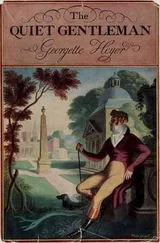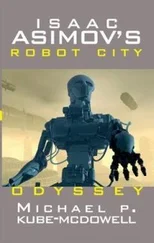“This is not economics,” said Tidwell. “This is political metaphysics. And you are aiding the Homeworlders, whether you consider yourself one or not.”
“Do you expect me to stop talking about this? We have a right to know what’s coming. I think that Jeremiah is right about the price we’re paying, about the decline to follow. But I think that he’s wrong to try to stop the Diaspora. Because the decline will come anyway. The capital is spent.”
“We have survived the worst of our problems,” said Tidwell. “The human race has a long and fascinating future ahead of it.”
“Yes,” Miller said. “But not on Earth. For us, this is the end of the race. This is the finish line, coming up on us now.”
Point: the afternoon briefing from the Memphis mission planners.
It was not as though there was anyone in the Building 2 auditorium who didn’t know where Memphis was headed. Sasaki’s predecessor had announced the Tau Ceti system as the provisional choice for prime rendezvous eleven years ago, and Sasaki had reconfirmed the choice three years later, long before staff and community selection had begun. The Tau Ceti of New Moon Over Barridan and other popular fictions was well ingrained in the public mind.
But Training was fond of bringing the staff together, 300 people in a 270-seat hall, for this conference or that presentation, a seminar here, a briefing there. Never longer than a fast ninety minutes, the gatherings figured in Training’s “unitary identity” strategy, a product of the best available sociometric and sociodynamic models. And an update briefing on the latest information on “T.C.,” as Anglish slang rendered it, was as good an excuse as any.
The briefing was brisk and well organized. The lecturer, a polished presenter, recalled the relevant astronomical history, with the big Publook imager above him providing three-dimensional visuals. Listening idly as he watched the pioneers watching the show, Tidwell absorbed some details to which he hadn’t attended during any previous exposure.
One of the nearest naked-eye stars, Tau Ceti had apparently been singled out early as a prime candidate for, in order, terrestrial planets, intelligent life, and Diaspora colonization. The first question was settled last, with the Hawking Space Telescope finally confirming seven planets in orbit around the G-class yellow star shortly after it went into operation in 2028.
An optimist could have taken a bet on the question of intelligent life more than a century ago, as the star had been a target of Frank Drake’s unsuccessful OZMA, the first radio-based SETI search. Every extrasolar study since had yielded the same negative result. And that included the ongoing Allied-sponsored studies employing the big scopes on Einstein , the new U.N. research station in polar orbit around the Sun.
Nowhere in the sky had they found the handiwork of intelligent life. Nowhere but on Earth had they found the signature of biological systems, past or present. Life, it seemed, was precious and rare, and the universe a lonelier place than many had once believed. Every indirect evidence, every reasoned analysis, said that Memphis might find a Venus, a Jupiter, if they were lucky a Mars or Titan, but no lush garden worlds, no alien Earth.
“We’ll go to Tau Ceti with a pocketful of options,” said the lecturer, “and write our own story as we go. If we find an interesting planet with an unfriendly climate, we might establish a research colony of a few hundred volunteers and then continue on. If the parameters are marginal, we could found a terraforming colony of up to a thousand inhabitants before leaving.
“And if they’re downright agreeable, we’ll likely all go down, keeping Memphis in orbit as a lifeboat for a few dozen years until a new generation comes along to carry on where we left off. Because you can be sure that some of them will inherit our wanderlust, and you can be just as sure they’ll think we’re as stuffy and settled as some of us consider our parents.” Laughter rippled through the room, self-knowing. “And they’ll have us as proof that it can be done. Won’t that be a moment to remember, when the first colony sends out its own colony ship?”
The question was answered by a swell of appreciative applause. Waiting it out, the lecturer smiled, nodded acknowledgment, and gave the thumb-in-fist salute. In a heart’s breath, the applause doubled, and scattered members of the audience came to their feet.
“I want to leave you with the best new picture of Tau Ceti, which we received from Einstein just this morning,” the lecturer continued as the applause faded. Above him, the Publook offered a dramatic image of a ghostly yellow star matted with the shadowy disk of one of its orbiting worlds.
“The best so far,” he said, as the applause picked up again, at first scattered, growing as he continued into an almost tribal drumming of hands. “But there’ll be better, and they’ll come from us. No one will know Tau Ceti better than we will.
“I’m glad for the pictures Starwatch feeds us. It’s amazing what additive digitizers and enhancers can do with a few photons captured ten light-years from their origin.”
He paused and swept the room with his smile. “But I’m looking forward to seeing Tau Ceti for myself, without benefit of technology. And if wishes are horses, some morning I’ll get to see it rise over a world that never knew life until you and I and the rest of the ten thousand arrived to make it our home.” He stepped down from his dais, signaling the end of the assembly, as cheers and whoops and defiant cries punctuated the fevered ovation.
How gently he plucked their strings , Tidwell thought as he sat in his seat, politely applauding. Yet how strongly they respond . Just a few months ago, Tidwell would not have wondered at the scene. He would have written it off to passionate emotion and a skillful orator—no more mysterious than a preacher exhorting his flock, or a revolutionary inspiring his followers. No different.
We shall be delivered . The message was the same. And perhaps the passions were also the same. A ready well of courage, of commitment, waiting to be drawn on. Missionary zeal, waiting for a moment in time. Had the speaker spoken knowingly of inheriting a wanderlust or merely reached for a resonant idiom? No matter. The idiom recurred in the words of many speakers.
There is only one history, but there are many historians. Where was the truth written? The fire was lit. Where did it burn? In the hearts of men? Or in the cold nucleic chemistry of their cells?
Floating in and out of consciousness, Tidwell heard a sound in the hall and then at the open doorway. He was asleep enough to be puzzled, awake enough not to startle. Looking toward the sound, he saw a moving shadow, heard a breeze, or was it a whisper? The door swung shut with a hiss.
“Who’s there?” he asked, rising to his elbows.
“It’s me, Thomas.” Softly, a woman’s voice.
The shadow became a shape alongside the bed. The breeze carried the faint scent of flowers and something more to Tidwell’s nostrils. “Miss—Malena—I am—”
A match flared in her hand, showing him the young girl’s face. The black chemise she wore showed him more, even in the flickering light. She touched the match to the wick of a stout red candle, then set the candle on the end of Tidwell’s trunk, which he had pressed into service as a nightstand.
He stared, and she smiled. “You told me to try and shock you.”
The airchair’s mounting bar silently telescoped upward and out over the bed, and Malena reached up and gracefully lifted herself onto the bed beside him. Her hand touched his hip, scalding him through the light sheet. “Have you ever made love with a woman like me?”
Читать дальше

![Nick Cracknell - The Quiet Apocalypse [= Island Zero]](/books/28041/nick-cracknell-the-quiet-apocalypse-island-zero-thumb.webp)










